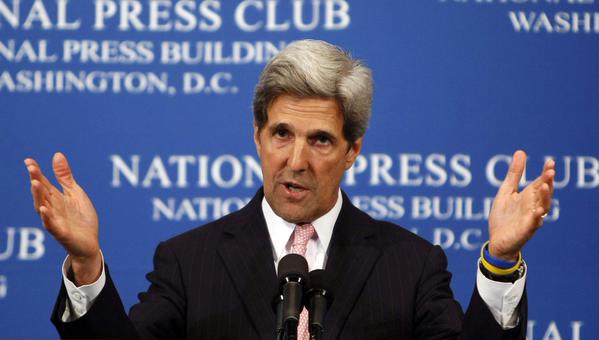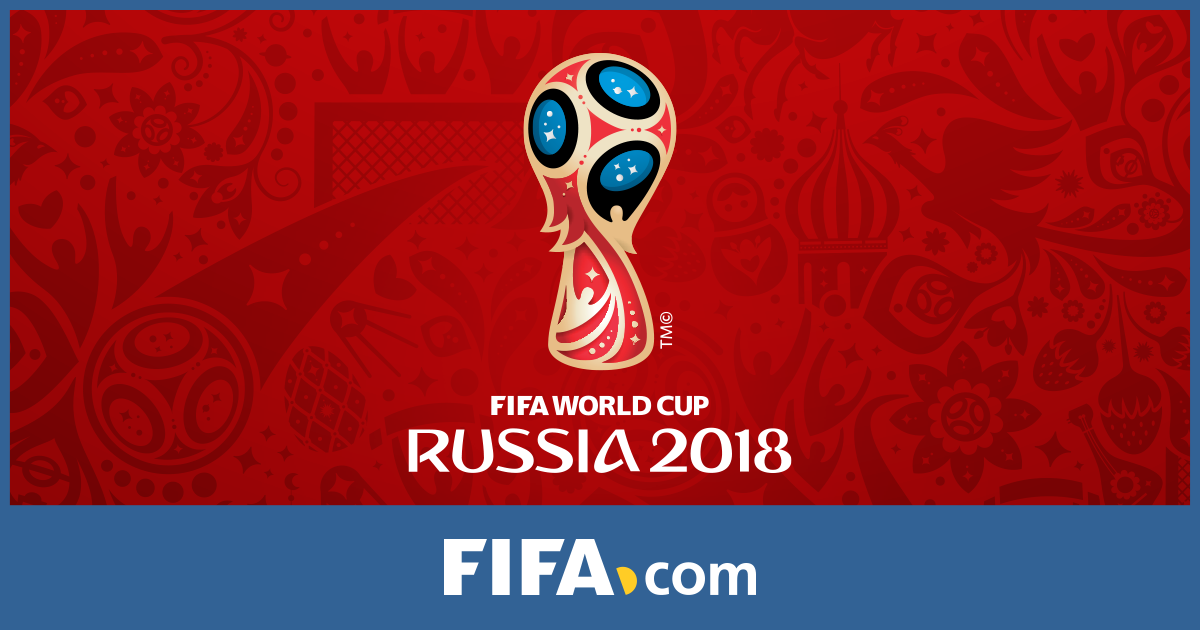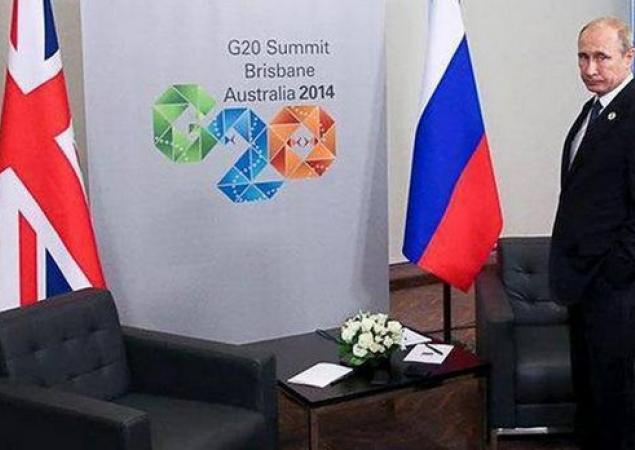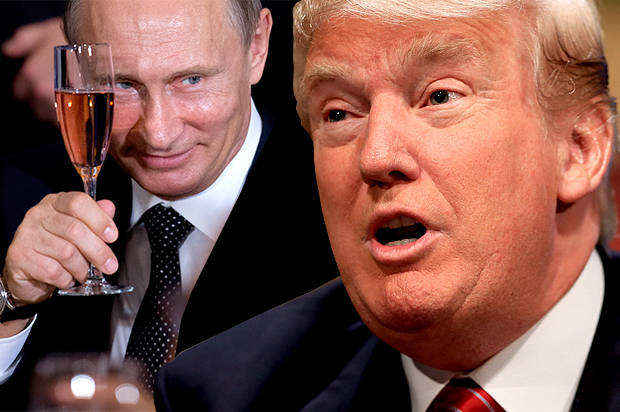The West appears to have accepted the deal Vladimir Putin has been offering the last month, agreeing not to challenge Russia’s annexation of Crimea de facto in exchange for the Kremlin leader’s declaration that he will recognize the territorial integrity of the rest of Ukraine and not expand his campaign against Kyiv, according to Andrey Piontkovsky.

Western leaders, he suggests, see this arrangement a diplomatic triumph because such a deal has the appearance of a genuine compromise and relieves them of the need to maintain a hard line against Russia or even prepare for a military response by allowing them to declare that “the Ukrainian crisis” has been solved.
This deal, Piontkovsky points out, leaves Ukraine much weakened in the short term. On the one hand, it does not require Putin to pull his forces out or stop his efforts to destabilize Ukraine. And on the other, it forces Kyiv to finance a region that will remain under effective Russian control, something even the Moldovan government doesn’t have to do in Transdniestria.
But it does give Ukraine clarity about exactly what its challenges are and at least potentially time to carry out the kind of fundamental reforms needed to integrate into Europe, reforms that if successful would constitute a historic breakthrough and likely lead to the genuine reintegration of the Donbas and Crimea into Ukraine given Russia’s inability to do the same.
In a commentary
yesterday, the Russian analyst argues that the basic features of the deal were outlined on April 19 in Fyodor Lukyanov’s “Moscow Times” article entitled “Putin Wants Peaceful Coexistence with the West,” the authoritative nature of which was underscored by its appearance in “Rossiiskaya gazeta” the next day.
That article made two key points: First, it asserted that "For the authorities to maintain the strong anti-Western sentiment they have manufactured, they must now take the conflict to the next level, and that is dangerous and extremely expensive.” And second, it added that "Turning back is impossible. The Crimean decision is irreversible, without putting the entire political model at risk. Any backtracking on support for eastern Ukraine would lead to serious political repercussions at home and would generally be perceived as a clear defeat for the Kremlin.”
The “tone” of that article, Piontkovsky points out, was “exclusively businesslike. There was no demagogy about an anti-Russian conspiracy” or anything of the like. In fact, with this article, Moscow took responsibility for ginning up “the anti-Western hysteria,” even as it indicated that it wasn’t ready or able to take the conflict to “the next level of escalation.”
But at the same time, the Russian analyst notes, the article sent a clear signal that “there could not be any discussion about the return of Crimea or the weakening of the Russian presence in separatist territories, above all for internal considerations.” Were those points to be raised, there would be “a serious political crisis” in Russia itself.
Such “a shocking recognition of the failure of the ‘Novorossiya’ Project and at the same time a demand for recognition of the results of the expansion already achieved” might seem too much for the market to bear. But Putin very correctly read his opposite numbers in the contemporary West.
If Western leaders were like the figures presented by Kremlin propaganda, such an exchange would have been unthinkable. But neither European leaders nor American ones want to have anything disturb them for long, Piontkovsky says; and consequently they will do whatever they can to end tensions, declare a settlement, and go back to business as usual.
The April “’Putin wants’ memorandum offered them just such an opportunity: Putin, as it were, agreed not to go further. The West can declare its victory achieved by peaceful diplomacy.” And, in one sense, the West did get a victory: Putin will not move into the Baltics in the near future, something which NATO would have to respond to or cease to exist.
Not surprisingly, the Western governments jumped at the opportunity the Kremlin presented them with. Berlin began putting pressure on Kyiv to accept Putin’s fundamentally dishonest interpretation of the Minsk accords, and US Secretary of State John Kerry hurried to meet Putin in Sochi.
It is important to understand what these moves mean and what they don’t. They clearly follow Putin’s script, but they don’t mean that the West has decided to throw over Ukraine or simply leave it to its own devices. Ukraine has enough force of its own to be a serious player, and the West has made clear that if Putin launches a new invasion, the West will oppose him.
This set of moves “defines the real foreign policy context in which in the coming years, the Ukrainian state must struggle for its existence,” and consequently, “in the relations of Ukraine with the West there must be all possible clarity,” with Kyiv fully understanding what the West will and won’t do.
Piontkovsky says that “the West will not return to Ukraine the territories it has lost as a result of Russian aggression, but the West is prepared to react to a further Russian escalation with harsh political and economic measures, including an expansion of arms shipments.”
That is a large part of the reason Moscow has made the concessions it has made.
These are the product not so much of its fears of Western reaction, the Russian commentator continues, but “above all because the resistance of the Ukrainian army would lead to the losses of Russian military personnel, something that Russian society would not accept.”
If Kyiv is wise, it will use this pause to build up its defense fortifications, given that “no one can guarantee what will take place tomorrow in the head of a man who is in another reality.” Putin will certainly continue his “terrorist and diversionary activity on the territory of all of Ukraine.” But Kyiv will be able to cope given the lack of support for Moscow in most places.
“The illusion of the preservation of the territorial integrity of Ukraine (without Crimea, it would seem)” is what Putin wants to use to put additional pressure on Kyiv. For a long time, Ukraine was frightened by the idea that it would face “a second Transdniestria,” but what it faces now is worse: it has to pay to support people on territories it doesn’t control.
The Minsk agreements don’t contain all the things Putin says, Piointkovsky says. “The only provision of the Minsk accords which really can be realized is the delimitation of Russian and Ukrainian forces and a ceasefire.” Ukraine must insist that its Western partners recognize that reality.
But what is most important, the Russian analyst says, is that Ukraine uses the coming months and years to “demonstrate to all its citizens, including those who are temporarily occupied territories, the undoubted and convincing success of economic and political reforms which will lead to the establishment of a contemporary European state.”
If Kyiv does so, Piontkovsky concludes, “this will be an event of enormous historical importance for Ukraine, for Russia, for Europe and for the entire post-Soviet space, an event whose inevitable and natural result will be the return to Ukraine of territories, traitorously taken away by the Russian authorities.”





